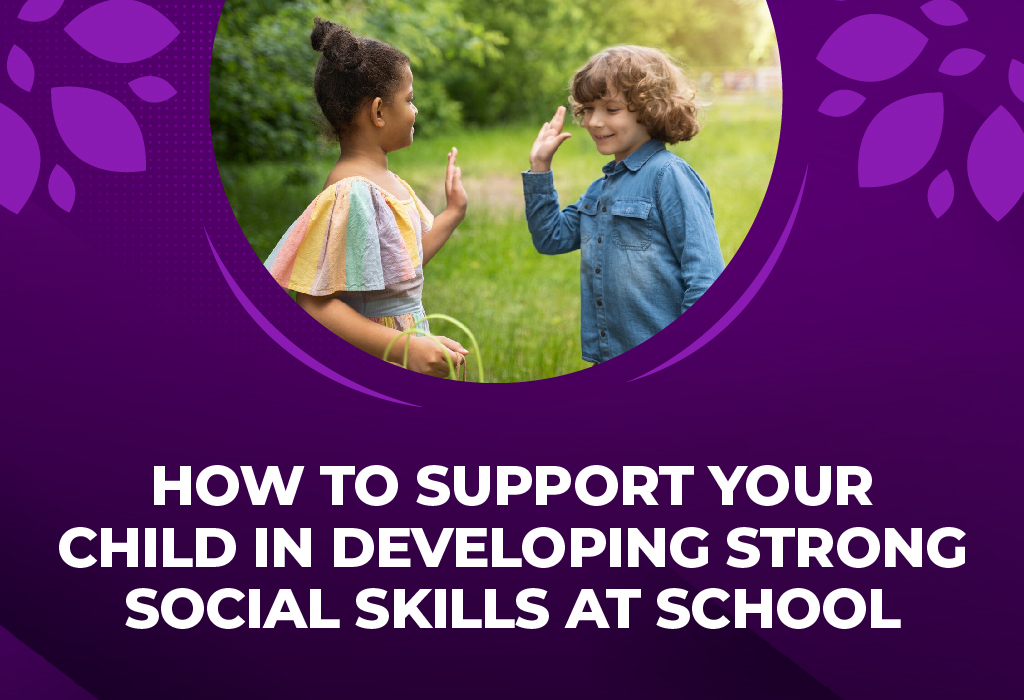How to Support Your Child in Developing Strong Social Skills

Supporting your child to develop strong social skills is very important to them for success in school life. Social skills do not only help children make friends but also build their confidence, cooperation, and ability to handle challenges. Here’s how you can support your child in developing strong social skills.
Promote Effective Communication
Open communication at home forms the first step to good social skills. Let your child be open about talking with you concerning their day, feelings, or even problems they might have concerning their social life.
Tip: Ask such questions like “What do you think you enjoyed most today?” or “Do you have new friends?” and it will encourage you to start opening up a real conversation.
Model Positive Social Behavior
Children learn by watching adults. If you demonstrate good social behaviour—like polite greetings, good listening, and respectful conversation—they will likely imitate it.
Tip: Show your child how to interact with others by practising greetings, good manners, and conflict resolution in your daily life.
Facilitate Playdates and Group Activities
Interacting with other children in low-pressure settings like playdates or group activities will help your child develop social skills, such as learning to share, teamwork, and problem-solving.
Tip: Set up regular playdates or encourage your child to participate in activities such as sports or clubs where he can interact with other children.
Impart Empathy and Respect
Teach your child to respect other people’s feelings. Teaching a child to empathize—acknowledge and respond to other people’s emotions—will bring out better relationships and communication.
Tip: When your child is in a conflict, help them understand how the other person might feel. Use phrases like, “How do you think your friend feels when.?”
Positive Social Interaction
Praise your child when they use good social skills, such as sharing, asking to join a group, or handling a conflict peacefully. This helps build confidence and encourages more of those behaviours.
Tip: Praise him for small successes, such as sharing his toys or raising his hand in class, by giving him something specific to say, like, “You were very nice to your friend today.”
Teach Conflict Resolution
Children will fight with each other. The lesson on solving the misunderstanding amicably will boost their social skills and emotional quotient.
Tip: Teach phrases like, “Can I share how I feel?” or “Let’s work together to solve this” to help them express their feelings calmly.
Encourage Independence
Encourage Independence in your child. This will make them very confident about their social interactions. Start giving them opportunities to take the lead in very small decision-making activities, like choosing clothes or organizing the backpack.
Tip: Give your child experiences to make decisions and solve problems on their own; this will build Independence and social skills.
Social Support
Create a supporting home environment for your child by teaching kindness, respect, and cooperation. Your child will take these principles into school interactions.
Tip: Model kindness in your home by using polite words and encouraging your child to do the same.
Conclusion
It takes time and practice to support your child in developing strong social skills. Encourage communication, model positive behaviour, and provide opportunities for interaction so your child can build the skills necessary to succeed socially at school. With your support, they will grow into confident, empathetic individuals capable of forming healthy relationships.

